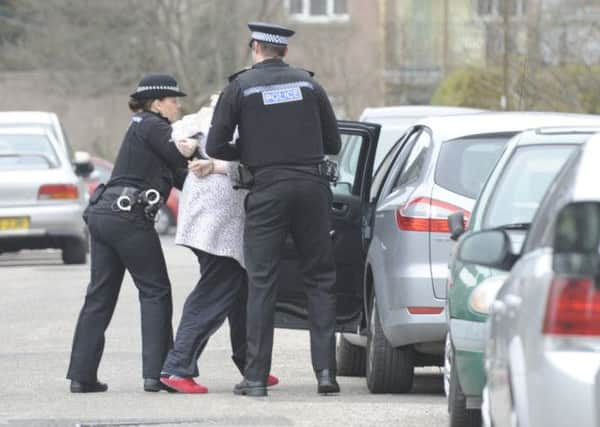Row over ‘massaged’ Police Scotland crime figures


Crime registrars – civilian statisticians with Police Scotland – believe they are encouraged to either not record crimes, or reclassify them, to make the force look good.
Her Majesty’s Inspectorate of Constabulary in Scotland (HMICS) carried out a review of crime recording shortly after the creation of the new national force in April. It found that of 1,501 incidents reviewed, 103 were not recorded to the standards set by the Scottish Crime Recording Standard (SCRS).
However, HMICS said that overall compliance was good.
Advertisement
Hide AdAdvertisement
Hide AdHM Inspector of Constabulary George Graham said: “Since the introduction of the SCRS, we have sought to ensure the standard is consistently applied. In conducting this review, HMICS has no reason to believe, or evidence to suggest, that staff are doing anything other than recording ethically.”
However, the report made clear that some staff felt they were under pressure to record crime inaccurately.
Rank-and-file police have already raised concerns that the new national force is too focused on target-based policing.
HMICS said Chief Constable Sir Stephen House was clear that crimes should be recorded accurately, but this message was not filtering down the ranks.
“The majority of the more senior officers said they had heard strong and consistent messages from the chief constable, or from crime registrars, about the importance of ethical and accurate crime recording and data integrity,” the report said.
“These messages had a significant impact on them and clearly shaped their approach.
“However, some of those who participated in our focus groups said they had not heard such messages and that they felt the service was focused solely on performance, rather than performance with integrity.”
It added: “A minority of participants (crime registrars) in our focus groups felt they had experienced pressure to not record a crime, or to change a crime classification.
Advertisement
Hide AdAdvertisement
Hide Ad“However, they felt able to resist such pressure and were grateful for the support of their crime registrar in doing so.”
Registrars also said they were sometimes asked to review crimes, and those featured within Police Scotland’s national performance framework were more likely to be questioned.
When it came to classifying crimes accurately, sexual offences had the lowest compliance rate with the SCRS, at 89 per cent, with domestic abuse the highest, at 99 per cent.
Chief Inspector Fergus Byrne, of Police Scotland, said: “The HMICS report identifies areas of best practice where recording compliance for domestic abuse, for example, is sitting at 99 per cent.
“We are working to ensure the same recording practices are applied to the recording of all incidents and crimes, and we have recently introduced a revised structure of crime registrars to ensure compliance against the Scottish Crime Recording Standard.”
Alison McInnes MSP, Scottish Liberal Democrat justice spokeswoman, said: “This report underlines the need to be vigilant against an overbearing targets culture in our police force. The ethical reporting of crime is vital if we are to understand and effectively tackle the causes of crime.
�“Police Scotland and the Scottish Police Authority must protect the credibility of the service and ensure that all staff are clear of the boundaries in which they are expected to operate.”